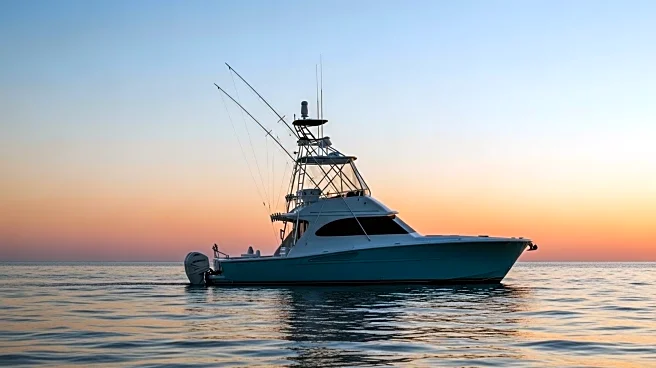What's Happening?
The North Carolina Coastal Counties Fisheries Coalition has proposed transferring the Division of Marine Fisheries from the Department of Environmental Quality to the state agriculture department. This proposal emerged from discussions with commercial fishermen who expressed concerns about catch limits, water quality, and predation management. The coalition aims to support North Carolina's commercial fishing industry by addressing these issues and improving the management of fisheries. The proposal is part of a broader effort to enhance the state's fisheries management system, which has faced challenges in recent years.
Why It's Important?
The proposal to move fisheries management to the agriculture department reflects ongoing concerns about the effectiveness of current management practices. By aligning fisheries with agriculture, the coalition hopes to create a more supportive environment for commercial fishermen, potentially reducing political influences and improving resource management. This shift could impact the livelihoods of fishermen and the availability of local seafood, addressing issues such as imported shrimp contamination. The proposal highlights the need for better education and transparency in fisheries management, which could benefit both the industry and consumers.
What's Next?
The coalition plans to hold its next meeting on November 5 to further discuss the proposal and other priorities. As the proposal gains attention, it may face scrutiny from various stakeholders, including legislators and environmental groups. The coalition will continue to engage with the commercial fishing industry to refine its priorities and advocate for legislative changes. If the proposal is implemented, it could lead to significant changes in how fisheries are managed in North Carolina, potentially influencing similar initiatives in other states.
Beyond the Headlines
The proposal raises questions about the balance between environmental protection and economic interests in fisheries management. Moving fisheries to the agriculture department could shift the focus towards food production, potentially affecting conservation efforts. The coalition's emphasis on local seafood and consumer education highlights the importance of sustainable practices in the industry. This development may also prompt discussions about the role of government in managing natural resources and the need for comprehensive policies that address both environmental and economic concerns.









